第56章
A capital employed upon land may be unproductive to the individual that employs it and yet be highly productive to the society. A capital employed in trade, on the contrary, may be highly productive to the individual, and yet be almost totally unproductive to the society: and this is the reason why I should call manufacturing labour unproductive, in comparison of that which is employed in agriculture, and not for the reason given by the French economists. It is, indeed, almost impossible to see the great fortunes that are made in trade, and the liberality with which so many merchants live, and yet agree in the statement of the economists, that manufacturers can only grow rich by depriving themselves of the funds destined for their support. In many branches of trade the profits are so great as would allow of a clear rent to a third person; but as there is no third person in the case, and as all the profits centre in the master manufacturer, or merchant, he seems to have a fair chance of growing rich,without much privation; and we consequently see large fortunes acquired in trade by persons who have not been remarked for their parsimony.
Daily experience proves that the labour employed in trade and manufactures is sufficiently productive to individuals, but it certainly is not productive in the same degree to the state.
Every accession to the food of a country tends to the immediate benefit of the whole society; but the fortunes made in trade tend but in a remote and uncertain manner to the same end, and in some respects have even a contrary tendency. The home trade of consumption is by far the most important trade of every nation.
China is the richest country in the world, without any other.
Putting then, for a moment, foreign trade out of the question, the man who, by an ingenious manufacture, obtains a double portion out of the old stock of provisions, will certainly not to be so useful to the state as the man who, by his labour, adds a single share to the former stock. The consumable commodities of silks, laces, trinkets, and expensive furniture, are undoubtedly a part of the revenue of the society; but they are the revenue only of the rich, and not of the society in general. An increase in this part of the revenue of a state, cannot, therefore, be considered of the same importance as an increase of food, which forms the principal revenue of the great mass of the people.
Foreign commerce adds to the wealth of a state, according to Dr Adam Smith's definition, though not according to the definition of the economists. Its principal use, and the reason, probably, that it has in general been held in such high estimation is that it adds greatly to the external power of a nation or to its power of commanding the labour of other countries; but it will be found, upon a near examination, to contribute but little to the increase of the internal funds for the maintenance of labour, and consequently but little to the happiness of the greatest part of society. In the natural progress of a state towards riches, manufactures, and foreign commerce would follow, in their order, the high cultivation of the soil. In Europe, this natural order of things has been inverted, and the soil has been cultivated from the redundancy of manufacturing capital, instead of manufactures rising from the redundancy of capital employed upon land. The superior encouragement that has been given to the industry of the towns, and the consequent higher price that is paid for the labour of artificers than for the labour of those employed in husbandry, are probably the reasons why so much soil in Europe remains uncultivated. Had a different policy been pursued throughout Europe, it might undoubtedly have been much more populous than at present, and yet not be more incumbered by its population.
I cannot quit this curious subject of the difficulty arising from population, a subject that appears to me to deserve a minute investigation and able discussion much beyond my power to give it, without taking notice of an extraordinary passage in Dr Price's two volumes of Observations. Having given some tables on the probabilities of life, in towns and in the country, he says (Vol. II, p. 243):
From this comparison, it appears with how much truth great cities have been called the graves of mankind. It must also convince all who consider it, that according to the observation, at the end of the fourth essay, in the former volume, it is by no means strictly proper to consider our diseases as the original intention of nature. They are, without doubt, in general our own creation. Were there a country where the inhabitants led lives entirely natural and virtuous, few of them would die without measuring out the whole period of present existence allotted to them; pain and distemper would be unknown among them, and death would come upon them like a sleep, in consequence of no other cause than gradual and unavoidable decay.